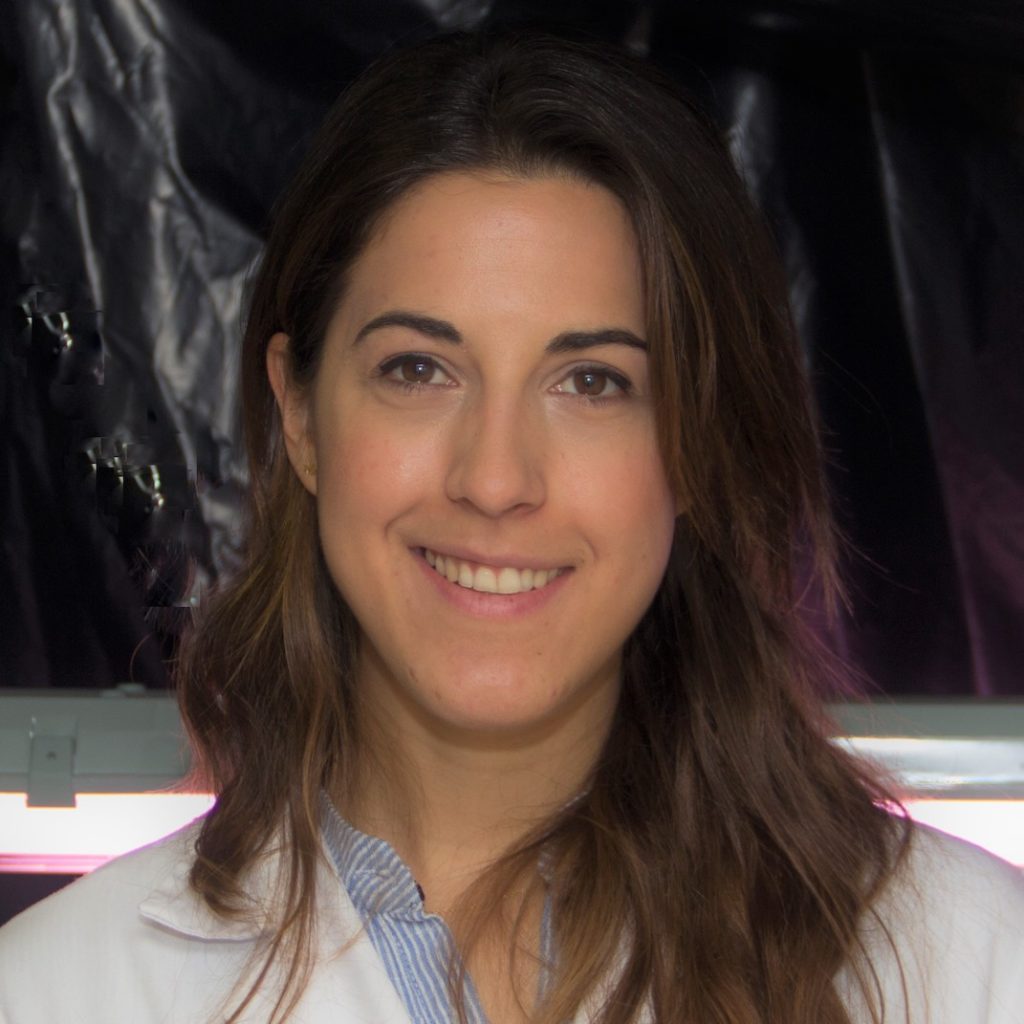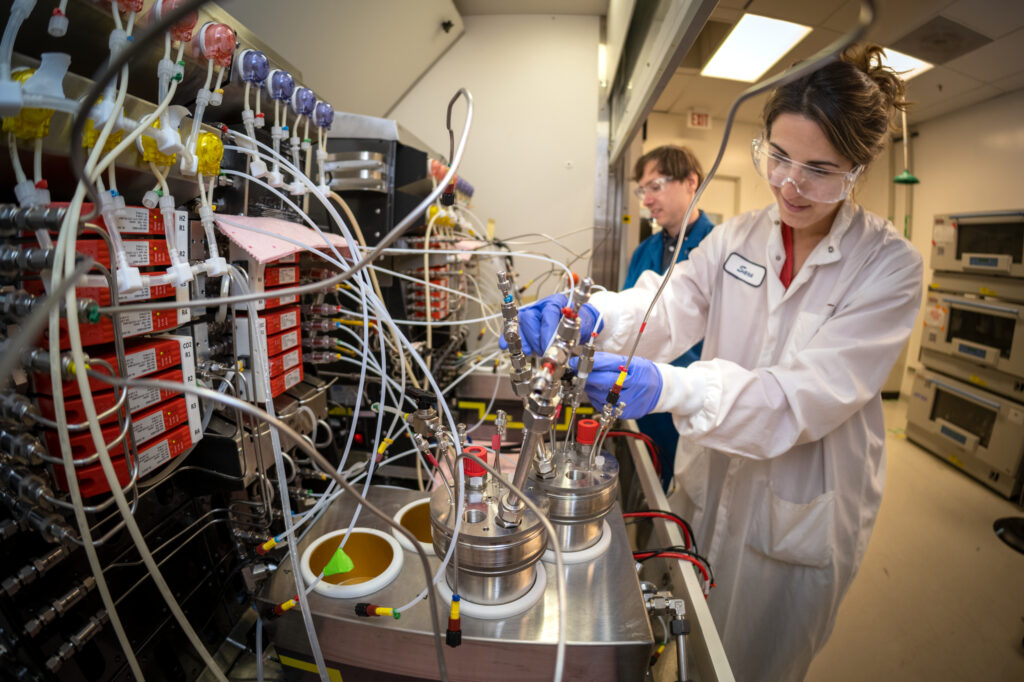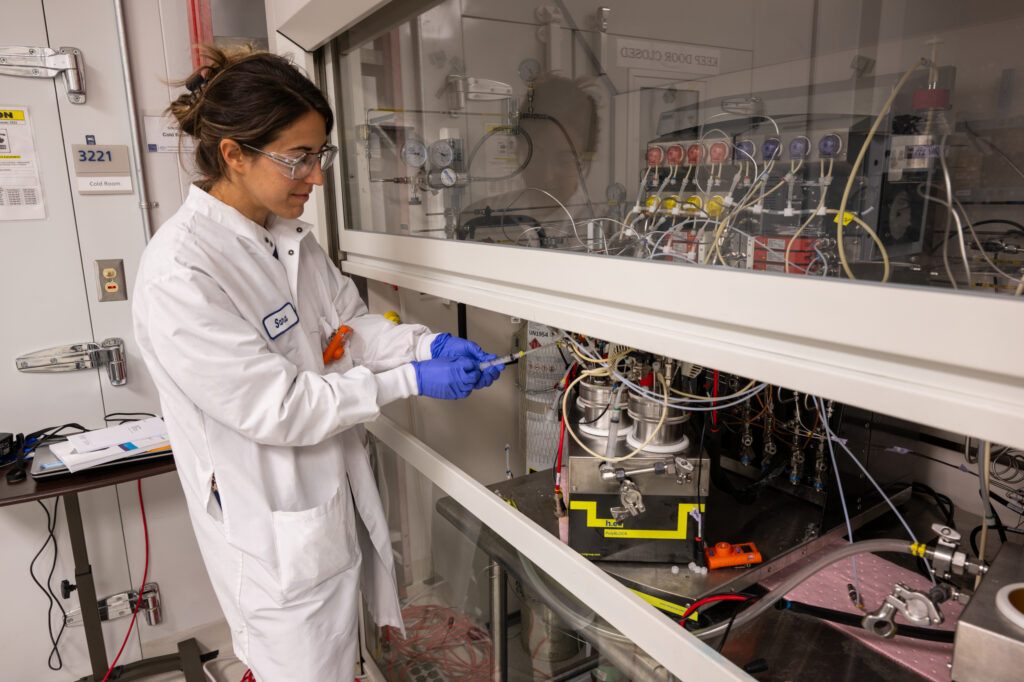
Sara Tejedor Sanz joined ABPDU in 2021 as a senior scientific engineer. She is starting a new role as a scientist at the European Commission’s Joint Research Centre.
What is your background and how did you become interested in science?
I started becoming interested in science around the age of 12 when my uncle and my aunt, former researchers at University of Wisconsin, talked to me about their work in the lab. The equipment they used, the lab coats, the scientific questions, hearing the words “molecules,” “electrons,” “chemical analyses” — this all ignited my curiosity for the work and role of scientists in society. All of that — together with my interest in nature documentaries and the pioneering work of researchers that unravel the complexities of the natural world — propelled me toward a career in environmental biotechnology. My academic journey started with a bachelor’s and master’s degrees in chemical engineering, followed by specialized studies in hydrology and water resources management. During my Ph.D., I focused on water treatment and purification processes using biological approaches.
What has your career journey been prior to joining ABPDU?
After my studies, I earned a Ph.D. in 2016 at the University of Alcalá (Madrid, Spain), where I started my journey in the field of microbial electrochemistry in the lab of Prof. Abraham Esteve-Nunez. It was very fun and inspiring to work with microbes that can interact with electrically conductive surfaces, and to develop environmental applications based on this phenomenon, such as water purification technologies.
I continued my research career within this field when I moved to the U.S. in 2018 and worked as a postdoctoral scientist at Berkeley Lab’s Molecular Foundry and Rice University within the laboratory of Prof. Caroline Ajo-Franklin. After several years studying and engineering microbe-electrode interactions (and fermenting kale juice using electrochemistry!), I wanted to move back to the applied side of science. During my job search, I saw ABPDU researchers were conducting fermentation research at a large scale, and were also interested in applying microbial electrochemistry. Even better, they were developing a new gas fermentation capability, and needed a scientist to work on all the above, so I applied for this opportunity.
What has it been like working at ABPDU and what have you been most proud of?
Working at ABPDU has been quite unique because I got to work with a diverse ecosystem of stakeholders of the biomanufacturing landscape, including government, startups, larger companies, universities, and nonprofits. You get an invaluable overview of the trends and challenges of biotech transfer. In addition, working at ABPDU exposed me to a highly diverse team of scientists that fostered a collaborative culture centered on continuous learning and growth.

During my journey of almost 3 years, I have worked on different research projects and supported several company collaborations. I’ve worked with thermophiles, with bioreactors from 0.5L to 300L scale, on gas fermentation and microbial electrosynthesis. Beyond technical learnings, Berkeley Lab supported my leadership and management skills via the Stanford LEAD program (Learn, Engage, Accelerate, and Disrupt). Further, in 2022, I was awarded a $500K Laboratory Directed Research and Development (LDRD) grant to lead a 2-year project on carbon dioxide conversion using microbial electrochemistry, in which I had a chance to build and lead a research team. This responsibility, together with the LEAD certificate in corporate innovation, has been a great professional and personal accomplishment for me.
What’s next for your career?
I am moving back to my home country, Spain, where I will be a Scientist at the European Commission’s Joint Research Centre. In this new position, I will be doing science to policy, and will use my technical expertise to provide independent, evidence-based science and knowledge on decarbonization technologies, supporting EU climate policies.
I hope to keep contributing to bringing biological-based decarbonization technologies to real world applications, either from government, academia or industry. On the other hand, I’ve really enjoyed the challenges of working with electroactive bacteria. Despite its complexities, I’m eager to continue learning the intricacies of merging biology, engineering, and electrochemistry, and maybe work in the future on the tech transfer of these technologies.
What is your outlook on the future of the biomanufacturing industry?

It is evident the potential that biomanufacturing can have for society, and I believe that technoeconomic analysis and AI tools will have a key role in the effective implementation of technologies. As renewable energy and carbon capture technologies become more efficient, biomanufacturing products from carbon dioxide — i.e. gas fermentation technologies — will soon become a reality. And for this, having accessible testing capabilities like ABPDU will be critical for accelerating the implementation process.